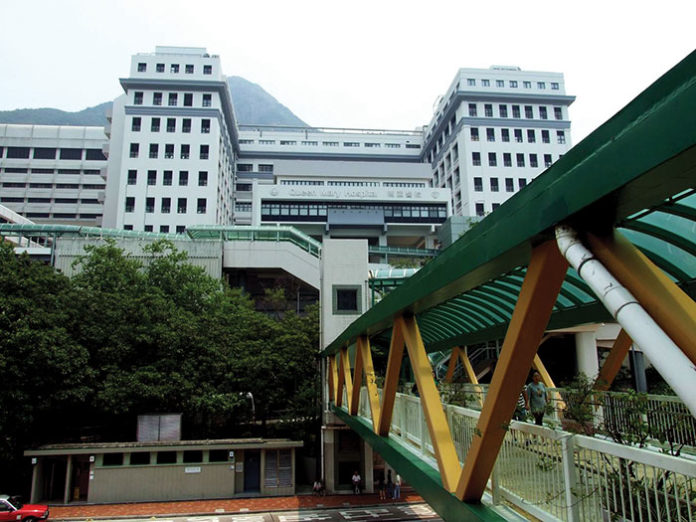“Although most public healthcare services in Macau are free [and Hong Kong charges citizens for medical services…], many Macau residents with serious diseases such as cardiovascular and vascular diseases, as well as cancer, prefer to resort to hospitals in Guangzhou or Hong Kong, provided that they have the financial resources. It is well known that the diagnosis and treatment of severe diseases in Macau do not give much confidence, although the internal medicine and general surgery is no longer very bad in general.”
These words are quoted from a research paper by UMAC professor Liu Bolong published in the official Administration magazine. Bolong’s research also underlines other factors: “The reduced population of five hundred thousand makes it difficult for advanced medical specialists to maintain standards.
On the other hand, as Macau is very close to Hong Kong, a city with a high level of healthcare and famous throughout Asia, patients with serious diseases usually seek consultation, therapy and hospitalization in this city. Thus, the limited number of medical specialists and the low level of academic qualification in Macau are already indisputable facts, which is one reason why health care institutions are not safe in the diagnosis and therapy of serious diseases.”
Bolong’s research may be from 2009 but it is not seriously outdated. Recently, a South China Morning Post (SCMP) investigative report revealed that the situation is, at best, the same. Or even worse.
In the same story, Fong Chi-keong, a Macau legislator and president of the board of directors of Kiang Wu Hospital Charitable Association, is quoted as saying: “The Macau Government says we don’t need to have everything in such a small place, and we can use Chinese and Hong Kong resources. The patients that Macau hospitals can’t handle are sent to Queen Mary Hospital [in Hong Kong].”
Thus, the government is the first to encourage ‘jumping ship.’ In 2015, some 2,955 patients were allowed to seek medical treatment abroad, of whom 1,852 were sent to Hong Kong, 10 to Mainland China and six to Portugal, while the remainder were transferred to other regions.
As of December 2015, medical expenses incurred abroad for local users amounted to approximately MOP230 million, learned Macau Business from official data. The expenses incurred for the acquisition of medical services abroad increased 11-fold between 2000 (MOP30 million, 725 patients) and 2014 (MOP400 million, 2,800 patients).
“In all honesty, Hong Kong’s capabilities and resources are undoubtedly superior to those of Macau. We must admit this reality. In Macau we only have to provide services to 600,000 people, but we have a full capacity to provide the fundamental services,” said Lei Chi Ion, Director of Macau’s Health Bureau, following the SCMP report.
But Macau people will not be treated in Hong Kong just because Macau lacks medical specialists or local waiting lists are significant (it takes months to conduct certain kind of diagnostic tests, for example).
On the one hand, medicine in Hong Kong has a lot of prestige; on the other, there seems to be a classical lack of confidence in the local health system, partly be explained by the fact that most doctors have been trained in Chinese Mainland universities (and many speak Cantonese with difficulty). Macau doesn’t have a single training school for Western medicine and there’s only one hospital with international accreditation, Centro Hospitalar Conde São Januário issued by the Australian Council on Healthcare Standards.
In a 2011 survey, of respondents who chose to use Macau ’s public health services for medical treatment only 6.34 per cent thought that local public health facilities ‘provide a professional medical service,’ according to the findings of a survey conducted by the Collective Wisdom Policy Centre, the think tank of the Macau General Neighbourhood Unions Association (Kai Fong).
According to the same findings, over half of the respondents chose the city’s private health facilities for treatment, while about 42 per cent went to public health facilities. The others claimed they ‘never use either.’
Billion upon billion
Macau was the richest Asian city per capita in 2014 (US$93,849) and the world’s fourth richest territory per person (according to 2013 World Bank figures) yet needs to send almost 3,000 patients per year to be treated abroad?
It is not easy to understand.
In 2015, the government’s budget for medical and health cases was about MOP5.88 billion, an increase of 19.7 per cent over 2014. For 2017, the government has announced another increase, to almost MOP7.20 billion.
The budget is therefore always growing (in 2010 it was MOP3.2 billion) but this has to stop one day. The government has appointed a Hong Kong research group to conduct research on whether to charge citizens for the use of public hospital services and help lower spending, according to the Secretary for Social Affairs and Culture, Alexis Tam, in December.
“We have to provide these benefits (basic medical support) to all citizens, and our work has in fact received approval by the World Health Organization,” said Secretary Tam. “We ensure free medical support for citizens aged 65 or above, students, teachers and patients with cancer [. . .] we are also working on improving the service quality of our public hospital,” noted the Secretary.
























